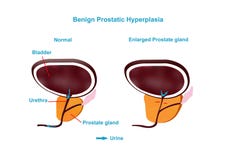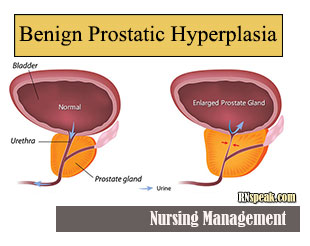Symptoms of Benign Prostatic Hyperplasia

If you suspect you have benign prostatic hyperplasia, the first step is to get an exam. This procedure is not recommended for men who have prostate cancer, as the symptoms of BPH are not immediately obvious. Moreover, if you notice an enlargement of your prostate, you should seek medical advice as soon as possible. This condition can cause many problems, including the obstruction of the urinary tract, and it can affect your health and safety.
Some of the signs and symptoms of BPH include trouble starting and stopping the stream, and an enlarged prostate can pinch the urethra, the tube that carries urine from the bladder to the penis. In some men, the prostate can grow large enough to enlarge the walls of the bladder, which can lead to the problem. The condition is most common in men over 50, but it can develop at any age.
The symptoms of BPH can occur at any age, and in some cases, BPH can occur in men of any age. Fortunately, most cases of this condition are benign, and the patient will not develop any significant complications. However, the risk of kidney damage from this condition is significant, and treatment may be needed. Although the symptoms of BPH are generally not life-threatening, they can affect a man’s self-esteem and productivity.
The first sign of BPH is that an aging man has trouble passing urine. His stream may be hard to start, or the stream may stop suddenly. An enlarged prostate can also pinch the urethra, the tube that carries urine from the bladder to the penis. It may cause the wall of the bladder to become thick and irritated. As a result, the prostate may be too large to pass urine properly.
In some cases, aging men may have trouble starting or stopping the flow of urine. This can happen because the enlarged prostate can press on the urethra, the tube that carries urine from the bladder to the penis. In other cases, the bladder walls may thicken and even become associated with enlargement. In these cases, you should consult your doctor to determine if BPH is possible. Additional natural treatments for BPH can be found at https://beatstherapeutics.com/.

Other symptoms of BPH include difficulty starting or stopping a jet, a swollen prostate, and difficulty urinating. Some men may have problems urinating at all or with slow urine flow. In other cases, an enlarged prostate can irritate the urethra and the walls of the bladder can thicken. In these cases, a Foley catheter is often used to prevent urinary retention.
Other symptoms of BPH include difficulty starting or stopping the jet and an enlarged prostate. An enlarged prostate can compress the urethra, the tube that carries urine from the bladder to the penis. It can also become brittle, leading to urinary incontinence. In addition to this, aging men can also have problems with urination. A doctor can help diagnose the condition.
An enlarged prostate is one of the most common symptoms of BPH. It may cause problems with urination and even the ability to urinate. Some men may experience difficulty starting a pee or having a stream that stops after a while. When an enlarged prostate presses against the urethra, the walls of the bladder may grow thicker and clog the urethra.
Patients with BPH should seek medical attention if they experience any of these symptoms. Symptoms of BPH are different for every person, so it is vital to seek medical advice to diagnose BPH. It is important to note that benign prostatic hyperplasia is not a sign of cancer. It is considered a normal part of aging and does not require medical treatment. When you notice any of these symptoms, consult your doctor immediately.
BPH is a common problem among men who are over 45. The size of the prostate gland can vary from man to man, but it can be significant. If BPH is causing you discomfort, you may want to consider having a checkup at a health care provider. In addition to the medical evaluation, your doctor may recommend certain lifestyle changes. Your health care provider will advise you on what you need to eat and what to avoid.
